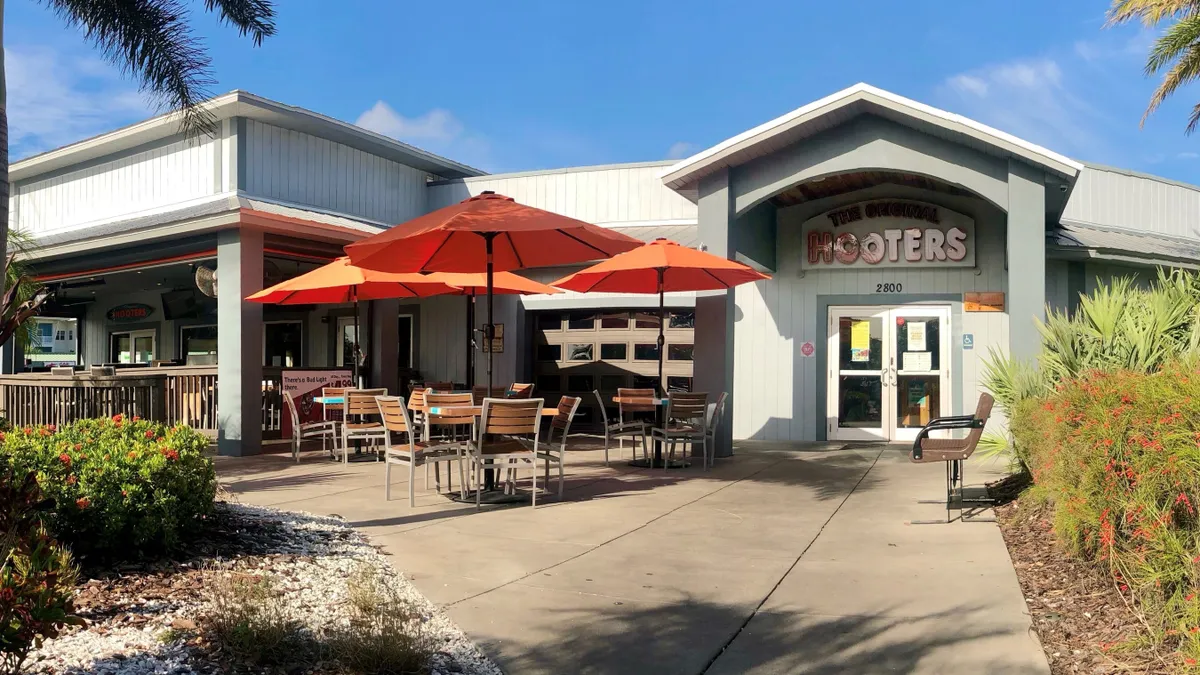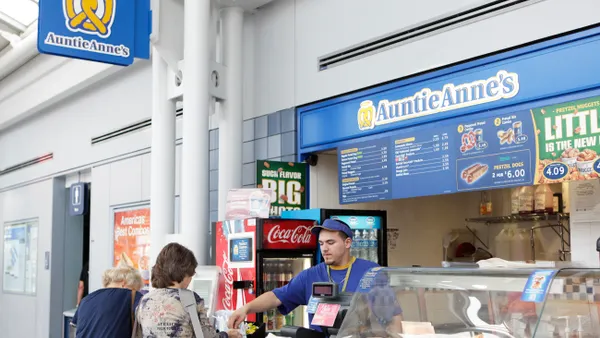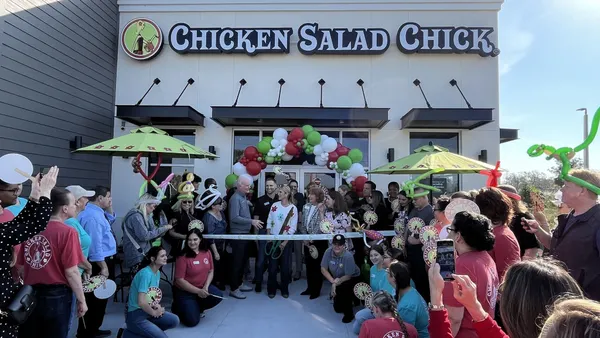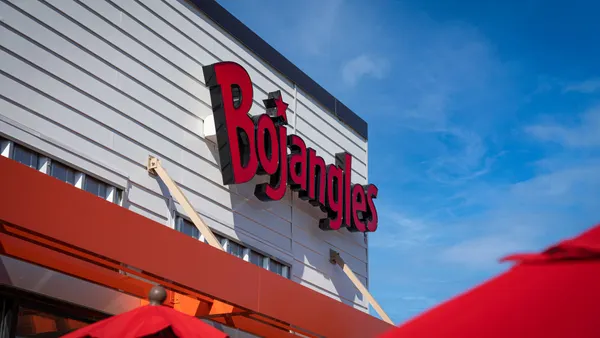Dive Brief:
- Hooters of America filed for Chapter 11 bankruptcy protections on Monday in conjunction with a proposed sale of its company-owned restaurants to two franchisees, according to a press release. The chain expects to emerge from Chapter 11 in 90 to 120 days.
- The Buyer Group, consisting of Hooters Inc., the originator of the brand and operator of 22 restaurants, and Hoot Owl Restaurants, will purchase over 100 restaurants from HOA. Hooters Brand Management, an entity owned by the purchasing companies, will take over the bulk of the brand’s franchise support operations, according to a separate press release.
- Hooters has struggled in recent years due to inflation and industry headwinds, according to a first day motion filed on Tuesday. The company has closed 48 underperforming locations since early 2024 and implemented operational improvements to try and improve its declining liquidity.
Dive Insight:
The buyout and restructuring process will allow Hooters to become a completely franchisee-owned business, simplifying operations. Hooters Inc. CEO Neil Kiefer said a franchised model will help “maximize the potential for sustainable long-term growth.”
The chain currently has franchise agreements with 35 operators who run 154 franchised restaurants; those restaurants will continue to function as normal, according to the first day motion. The buyers currently own over 30% of domestic franchised locations, including 14 of the chain’s 30 highest-volume locations, according to a press release.
“For many years now, the Hooters brand has been owned by private equity firms and other groups with no history or experience with the Hooters brand,” Kiefer said. “As a result of these transactions, the Hooters brand will once again be in the hands of highly experienced Hooters franchisees and we will be well-positioned to return this iconic brand to its historic success.”
Prior to the bankruptcy filing, the company directly owned 151 Hooters restaurants which generated about $359 million in revenue last year. However, company-owned store revenue has not been enough to cover overhead expenses, according to the first day motion. HOA holds a debt balance of about $376 million, of which over $30 million was owed in debt service payments last year. For 2025, its debt service payments would be $19 million under its current capital structure.
“Increases in the cost of labor and commodities in recent years have raised the cost of ‘dining out,’ a cost which the Company has borne directly with respect to the Company-Owned Stores and has been unable to fully negate through top-line growth,” Keith Maib, HOA’s chief restructuring officer, said in the first day motion.
With consumers pulling back on dining out, the company faced tight liquidity when it needed to tap cash reserves to adapt to the changes in the industry. This squeeze kept the company from investing sufficient capital in operational improvements like restaurant maintenance and refurbishment, employee training and menu updates. Those factors led to a negative impact on the company’s performance and financial position, Maib said. Closing underperforming locations also exposed the company to various litigation risks, including lease obligations.
HOA did take several actions to try and boost its business last year, including a “guest-obsessed training program,” across its remaining locations that, Maib said, improved the overall guest experience.
The brand also began pursuing retail partnerships and entered into a licensing agreement with Publix Super Markets to sell Hooters-branded frozen meals at 1,250 locations.
To fund its operations without disruption, HOA is seeking approval for $40 million in debtor-in-posession financing from certain existing lenders, including $35 million in new capital, according to a press release. This financing will provide enough liquidity to support operations during the restructuring process.














